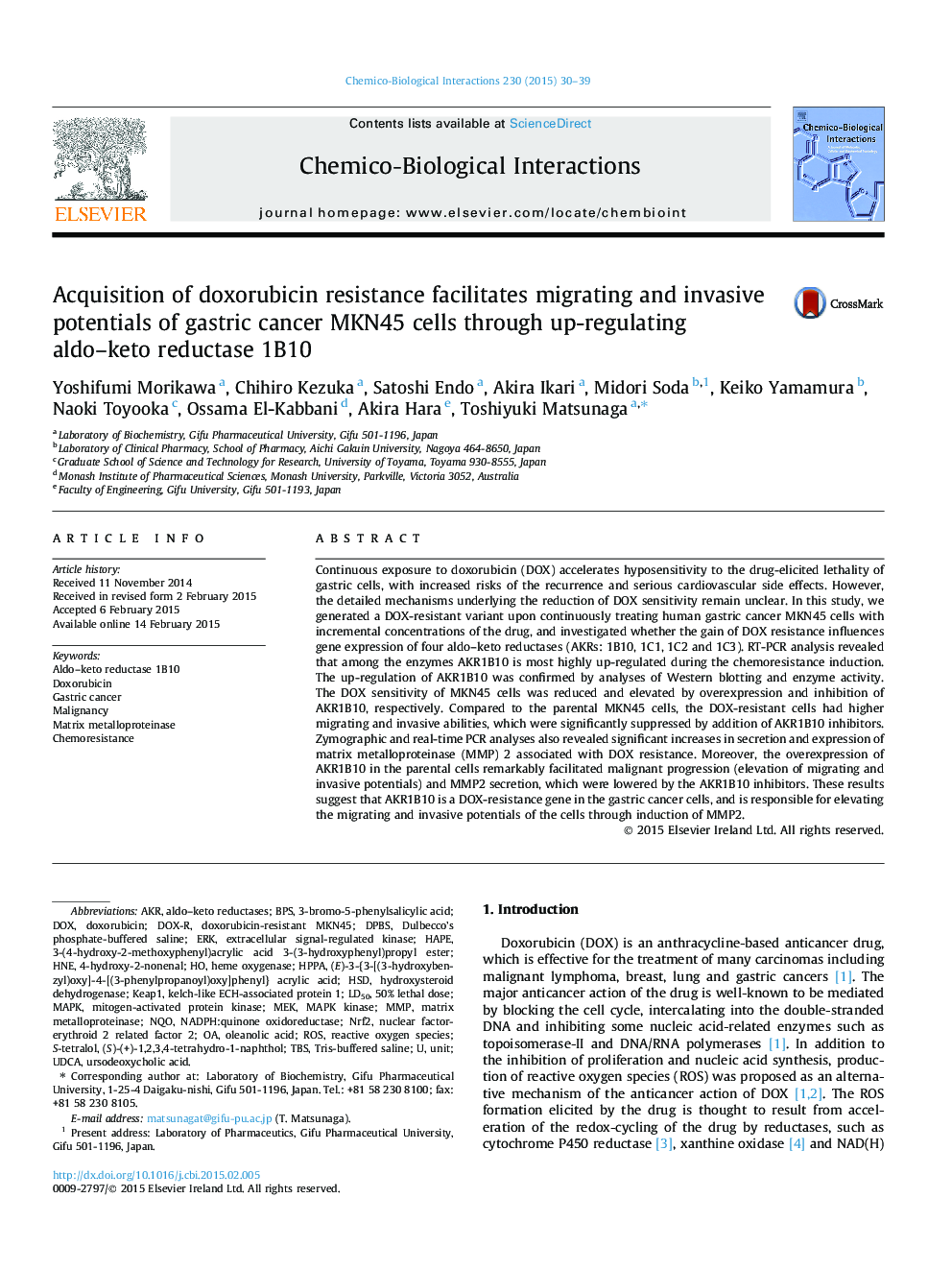| کد مقاله | کد نشریه | سال انتشار | مقاله انگلیسی | نسخه تمام متن |
|---|---|---|---|---|
| 2580262 | 1561611 | 2015 | 10 صفحه PDF | دانلود رایگان |

• AKR1B10 is up-regulated by acquiring DOX resistance of gastric cancer MKN45 cells.
• The DOX resistance promotes the migrating and invasive potentials.
• The promotion of invasive potential is maybe due to MMP2 up-regulated by AKR1B10.
• AKR1B10 inhibitors overcome the DOX-elicited resistance and malignant progression.
Continuous exposure to doxorubicin (DOX) accelerates hyposensitivity to the drug-elicited lethality of gastric cells, with increased risks of the recurrence and serious cardiovascular side effects. However, the detailed mechanisms underlying the reduction of DOX sensitivity remain unclear. In this study, we generated a DOX-resistant variant upon continuously treating human gastric cancer MKN45 cells with incremental concentrations of the drug, and investigated whether the gain of DOX resistance influences gene expression of four aldo–keto reductases (AKRs: 1B10, 1C1, 1C2 and 1C3). RT-PCR analysis revealed that among the enzymes AKR1B10 is most highly up-regulated during the chemoresistance induction. The up-regulation of AKR1B10 was confirmed by analyses of Western blotting and enzyme activity. The DOX sensitivity of MKN45 cells was reduced and elevated by overexpression and inhibition of AKR1B10, respectively. Compared to the parental MKN45 cells, the DOX-resistant cells had higher migrating and invasive abilities, which were significantly suppressed by addition of AKR1B10 inhibitors. Zymographic and real-time PCR analyses also revealed significant increases in secretion and expression of matrix metalloproteinase (MMP) 2 associated with DOX resistance. Moreover, the overexpression of AKR1B10 in the parental cells remarkably facilitated malignant progression (elevation of migrating and invasive potentials) and MMP2 secretion, which were lowered by the AKR1B10 inhibitors. These results suggest that AKR1B10 is a DOX-resistance gene in the gastric cancer cells, and is responsible for elevating the migrating and invasive potentials of the cells through induction of MMP2.
Figure optionsDownload as PowerPoint slide
Journal: Chemico-Biological Interactions - Volume 230, 25 March 2015, Pages 30–39